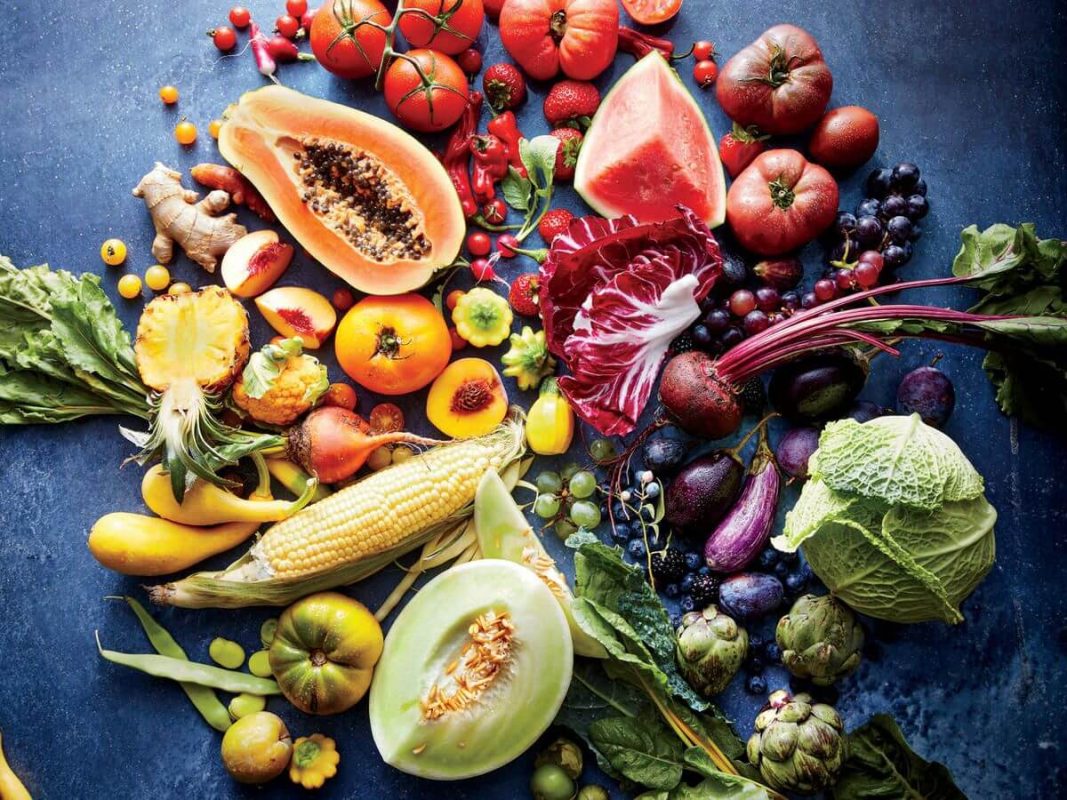World News
The Role of Diet and Nutrition in Breast Cancer Prevention and Management
Introduction: The Power of Diet in Preventing and Managing Breast Cancer
Breast cancer is one of the most common cancers affecting women worldwide, but recent research suggests that diet and nutrition may play a crucial role in both its prevention and management. While genetics and environmental factors are significant, growing evidence indicates that a healthy diet can influence breast cancer risk, outcomes, and recovery. The importance of dietary choices goes beyond simply losing weight or maintaining a healthy body—certain foods can actively promote a favorable biological environment that supports overall health and reduces the risk of cancer development.
This article explores the role of diet and nutrition in breast cancer, focusing on how specific dietary patterns can impact cancer risk, help manage the disease, and improve recovery outcomes. By understanding the connection between diet and breast cancer, individuals can make informed choices that support their health at all stages of their cancer journey, from prevention to treatment and beyond.

Understanding the Link Between Diet and Breast Cancer Risk
Breast cancer is a multifactorial disease, meaning it results from a combination of genetic, environmental, and lifestyle factors. While we cannot change our genetic makeup, lifestyle choices, particularly diet, can significantly influence breast cancer risk. Several mechanisms connect diet to breast cancer, including hormone regulation, inflammation, oxidative stress, and body weight.
Hormones and Breast Cancer Risk
Many cases of breast cancer are estrogen-receptor positive (ER+), meaning they are fueled by estrogen, a hormone produced naturally in the body. A diet high in saturated fats and processed foods can contribute to higher levels of circulating estrogen, which may increase the risk of developing breast cancer. On the other hand, certain foods, such as fruits, vegetables, and whole grains, contain phytoestrogens—plant compounds that can act like estrogen but in a much weaker, less harmful way. These phytoestrogens may help balance hormone levels and reduce breast cancer risk.
Inflammation and Oxidative Stress
Chronic inflammation and oxidative stress are well-established risk factors for the development of cancer, including breast cancer. An unhealthy diet high in processed foods, refined sugars, and unhealthy fats can promote inflammation and oxidative damage, creating an environment conducive to cancer cell development. Conversely, a diet rich in antioxidants from colorful fruits and vegetables can help counteract oxidative stress and reduce inflammation, potentially lowering the risk of breast cancer.
Body Weight and Cancer Risk
Excess body fat, particularly abdominal fat, is another significant risk factor for breast cancer, especially after menopause. Fat tissue produces estrogen, and higher levels of body fat can lead to higher estrogen levels, which may increase the risk of developing estrogen receptor-positive breast cancer. Maintaining a healthy weight through a balanced diet and regular physical activity can help regulate hormone levels, reduce inflammation, and lower breast cancer risk.
The Role of a Mediterranean Diet in Breast Cancer Prevention
One of the most widely studied dietary patterns linked to a lower risk of breast cancer is the Mediterranean diet. This diet, traditionally followed by people living in countries bordering the Mediterranean Sea, emphasizes plant-based foods, healthy fats, and moderate consumption of fish and poultry. It has been associated with numerous health benefits, including a reduced risk of cancer, cardiovascular disease, and diabetes.
Key Components of the Mediterranean Diet
The Mediterranean diet is rich in fruits, vegetables, whole grains, legumes, nuts, and seeds. These plant-based foods provide an abundance of fiber, antioxidants, and phytochemicals that help protect cells from oxidative damage and reduce inflammation. Olive oil, a primary fat source in the Mediterranean diet, is high in monounsaturated fats, which have anti-inflammatory properties and can help maintain heart health.
Fish, particularly fatty fish like salmon, mackerel, and sardines, are important sources of omega-3 fatty acids in the Mediterranean diet. Omega-3s have been shown to reduce inflammation and may help reduce the risk of breast cancer by inhibiting the growth of cancer cells and promoting the death of damaged cells.
The Mediterranean diet also includes moderate consumption of red wine, typically consumed in small amounts during meals. Some studies suggest that the antioxidants found in red wine, particularly resveratrol, may offer protective benefits against cancer. However, excessive alcohol intake can increase breast cancer risk, so moderation is key.
How the Mediterranean Diet Helps Prevent Breast Cancer
Research has shown that the Mediterranean diet can reduce the risk of developing breast cancer, particularly in postmenopausal women. The diet’s emphasis on plant-based foods and healthy fats helps regulate hormone levels, reduce inflammation, and promote healthy body weight. Studies have also suggested that the diet can help improve the body’s immune function, enabling it to better fight cancer cells.
Additionally, the Mediterranean diet has been linked to improved gut health, which plays a crucial role in immune function and overall health. A healthy gut microbiome can influence inflammation and hormone regulation, further reducing breast cancer risk. The diet’s anti-inflammatory properties are particularly important for individuals with a family history of breast cancer or other risk factors.

Nutrition During Breast Cancer Treatment: Foods That Support Recovery
For individuals diagnosed with breast cancer, nutrition plays an equally important role during treatment. Chemotherapy, radiation, and surgery can take a toll on the body, leading to side effects like fatigue, nausea, weight loss, and compromised immune function. A well-balanced diet can help manage these side effects and support the body’s recovery process.
Managing Side Effects with Nutrition
One of the most common challenges during breast cancer treatment is maintaining adequate nutrition, especially when appetite loss, nausea, or difficulty swallowing occur. In such cases, focusing on nutrient-dense, easy-to-digest foods becomes important. Smoothies made from fruits, vegetables, and protein-rich ingredients like yogurt or tofu can provide essential nutrients while being gentle on the stomach.
During chemotherapy, the immune system can become weakened, making individuals more susceptible to infections. A diet rich in vitamins and minerals—especially vitamin C, vitamin E, and zinc—can help support the immune system and speed up recovery. Foods like citrus fruits, leafy greens, nuts, seeds, and whole grains should be included in the diet to provide these essential nutrients.
Maintaining Muscle Mass and Strength
Cancer treatment can sometimes lead to muscle wasting or weight loss. Protein is essential for maintaining muscle mass, so it’s important for cancer patients to include adequate protein sources in their diet. Lean meats, fish, eggs, legumes, and plant-based protein sources like tofu and quinoa are all excellent options. Consuming smaller, more frequent meals throughout the day can also help ensure adequate protein intake.
Hydration and Fluid Balance
Staying hydrated is crucial during cancer treatment, especially if the patient is experiencing side effects like vomiting or diarrhea. Drinking water, herbal teas, and broths can help prevent dehydration. For those who have trouble drinking enough fluids, soups or smoothies can provide hydration while offering additional nutrients.
The Impact of Diet on Long-Term Breast Cancer Survivorship
Diet doesn’t just play a role during breast cancer treatment—it also plays a significant part in long-term survivorship. Once treatment is over, adopting a healthy diet can help reduce the risk of recurrence and improve quality of life. A balanced diet supports continued recovery, boosts energy levels, and improves overall health.
Preventing Recurrence Through Diet
Research suggests that dietary factors may influence the risk of breast cancer recurrence. Maintaining a healthy weight, eating a balanced diet rich in fruits and vegetables, and limiting processed foods and red meats are all steps that can reduce recurrence risk. Some studies have shown that plant-based diets, such as the Mediterranean or DASH (Dietary Approaches to Stop Hypertension) diet, may lower the risk of cancer recurrence by reducing inflammation, balancing hormone levels, and promoting a healthy immune system.
In addition, some foods may have specific anticancer properties. For example, cruciferous vegetables like broccoli, cauliflower, and Brussels sprouts contain compounds that can help detoxify the body and prevent the growth of cancer cells. Foods rich in omega-3 fatty acids, such as fatty fish and flaxseeds, have also been associated with a lower risk of recurrence.
Improving Quality of Life Post-Treatment
In the years following treatment, many breast cancer survivors experience lingering side effects, including fatigue, weight changes, and psychological challenges. A healthy diet can help improve energy levels, mental clarity, and emotional well-being. Foods rich in omega-3 fatty acids, such as walnuts and fish, can support brain health, while foods high in fiber can help maintain healthy digestion and weight.
Incorporating a variety of colorful fruits and vegetables ensures that survivors get a wide range of antioxidants, which support overall health and protect against oxidative stress. Regular physical activity, paired with a nutrient-rich diet, can help survivors maintain a healthy weight, reduce stress, and improve their quality of life long after cancer treatment.
Conclusion: A Holistic Approach to Breast Cancer Prevention and Recovery
The link between diet and breast cancer risk, treatment, and recovery is undeniable. Through a combination of scientific research and practical recommendations, we understand more than ever how certain foods can lower breast cancer risk, support treatment, and improve long-term survivorship. A diet rich in fruits, vegetables, whole grains, and healthy fats—such as those found in the Mediterranean diet—offers protective benefits and may reduce the risk of breast cancer.
For those undergoing treatment or living as survivors, diet continues to be a critical factor in managing side effects, preventing recurrence, and improving overall well-being. With careful attention to nutrition, individuals can strengthen their bodies, support healing, and foster a healthier future.
Whether you’re looking to reduce your risk of breast cancer or improve your recovery, making mindful, nutrient-rich choices is key. The ongoing research continues to show that, as part of a holistic approach to health, diet is a powerful tool that can influence not only your weight and overall well-being but also your risk of cancer.
From Ecomhao

